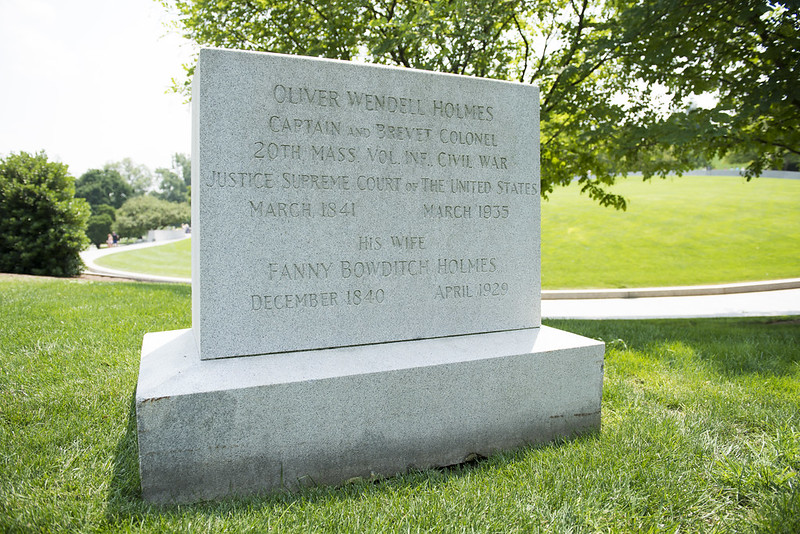Oliver Wendell Holmes

Section 5, Grave 7004-A
Born to an elite Boston family in 1841, Oliver Wendell Holmes was named after his father, a renowned writer and physician. After graduating from Harvard College, he served as an officer in the Massachusetts Twentieth Volunteers during the Civil War, and then returned to Harvard to study law. As a lawyer, he practiced at Boston firms for 15 years, edited the American Law Review and taught law at his alma mater. In 1881, his book "The Common Law" confirmed that Holmes, at only 40 years old, had emerged as one of the most eminent legal philosophers in the United States.
In 1882, Holmes received both an endowed chair at Harvard Law School and an appointment to the Massachusetts Supreme Court. He remained on the state court for 20 years, serving the last three as chief justice. In 1902, President Theodore Roosevelt nominated him for the Supreme Court of the United States. Serving on the Supreme Court for more than 29 years, Holmes became one of the most influential judges in U.S. history, who is still widely cited today. He earned his nickname "The Great Dissenter" not because he dissented frequently from the Court's majority opinion, but because his dissenting opinions were so forceful and persuasive. A committed defender of the First Amendment, Holmes is known for the "clear and present danger" doctrine, which held that the U.S. government could restrict speech only when it posed a "clear and present danger" to the national interest.
After 29 years of service on the bench, Justice Holmes retired in 1932 at the age of 90, making him the oldest justice to have served on the Supreme Court of the United States. He died in Washington, D.C. on March 6, 1935, two days before his 94th birthday.